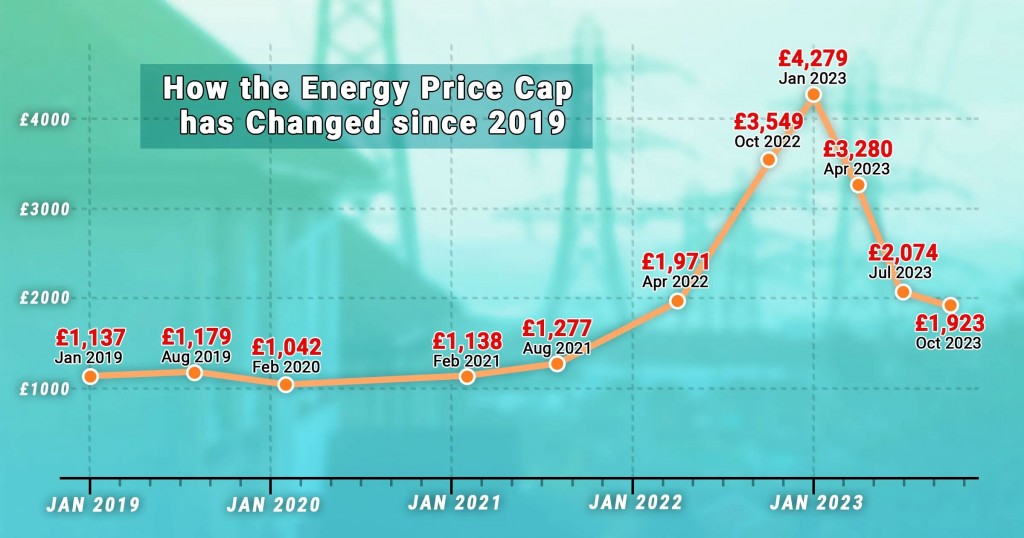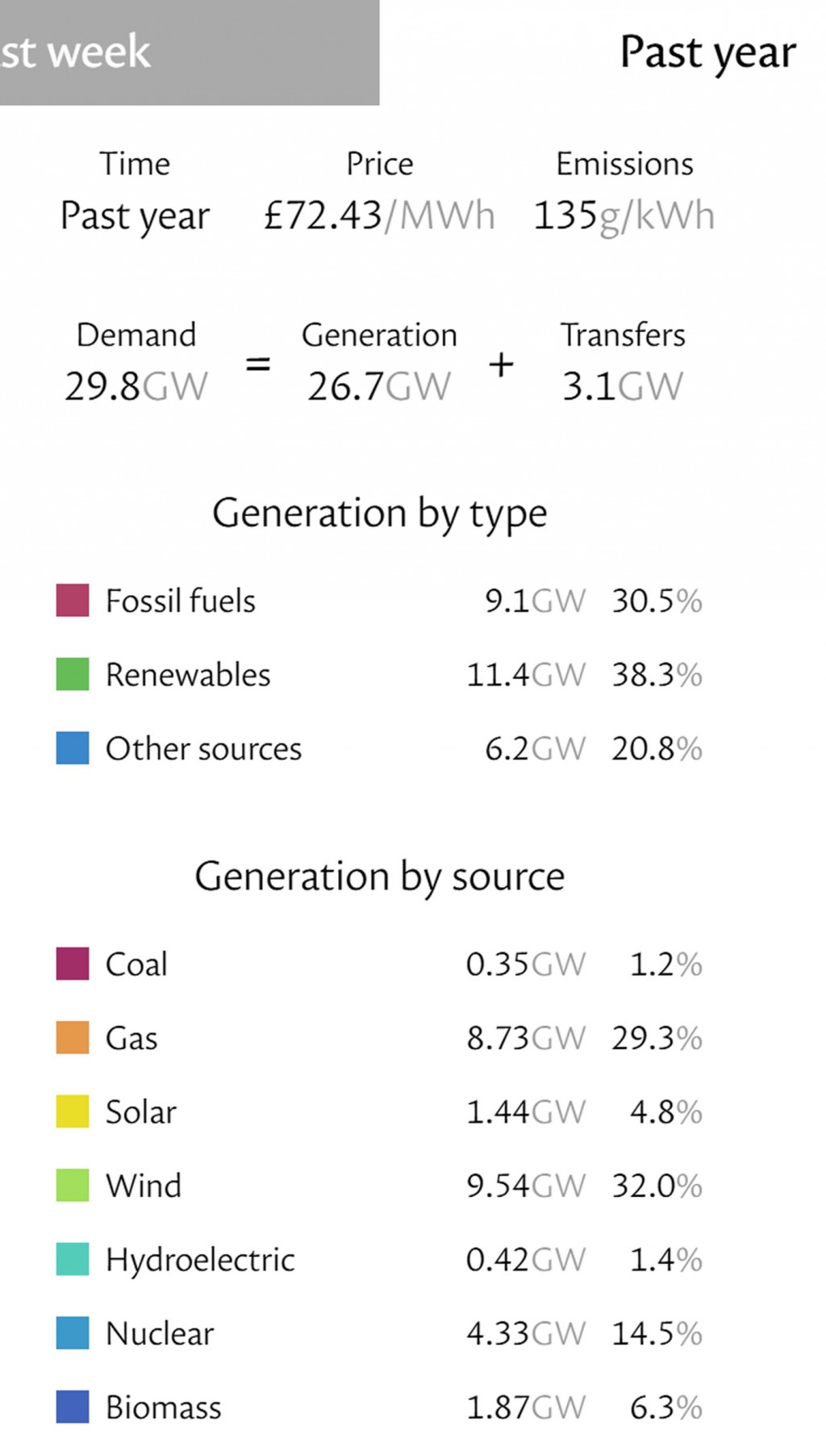Biden's Climate War He Is Taking No Prisoners

For months now gas prices have topped $4 per gallon – The fact is this is more than double what we were paying just two years ago. Electricity costs are soaring as well, and are costing many from 25% to 40% more this summer. Let's face it these energy costs eat up a larger share of our budgets. These heavy costs are falling especially hard on lower-income Americans, retirees, and those on fixed incomes. Recently, when asked how long Americans will have to stomach these prices, President Biden said bluntly, “As long as it takes.”
These high energy prices are a direct result of the President’s climate agenda, which he put in place on his first days in office. It well appears he refused to abandon his killing energy policies, even in the face of growing inflation. Even in the face of the mounting costs to Americans. However, President Biden did promise in 2019 “We are going to end fossil fuel.” He showed that he is serious. As President, he has aggressively sought to keep that promise by blocking oil and gas development across the nation and has waged a relentless war on coal, and big oil companies. Many of us had hoped he would alter his course amid out-of-control energy prices, but he has simply resorted to band-aid solutions to try to hide the harmful effects of his policies. His gimmicks have filed...
Since November 2021, President Biden has released more than 150 million barrels of oil from our Strategic Petroleum Reserve (SPR) in an attempt to lower gas prices, and when his pleas for oil from the Saudis failed, yesterday he announced he will release another 20 million barrels from the SPR. Predictably, the other four SPR releases have not worked well. He now faces a good possibility that in the near future gas will return to the highs previous to his SPR release band-aids. The fact is, Americans are still paying over $4 per gallon, yet now our oil reserve – which was designed strictly for emergencies – has been largely depleted, leaving us more vulnerable in the future. It is also been reported that over five million barrels from our SPR ended up overseas, and in China.
He has urged foreign countries, like Saudi Arabia and Venezuela, to boost oil exports, while he continues to crush American oil production. Recently, he even tried to tell gas stations to lower their prices unilaterally, as if somehow they could in some respect control the global oil market. President Biden in my view is in total denial that his anti-energy policies are the real problem.
Biden's green agenda could lead to blackouts. In addition to hurting the economy, the President’s war on energy poses a growing risk to our power grid. Natural gas and coal currently provide 60 percent of our electricity, yet these are the very power sources President Biden is targeting with heavy regulations. According to the Energy Information Administration, 85 percent of power plant closures this year are expected to be among coal-fired plants – a direct result of the President’s war on coal. With our power supply shrinking, experts say more than half of the country now faces a higher risk of power outages this summer.
Ten years ago, the German government made an attempt to move away from coal and nuclear power the way President Biden is trying to do now. After a few years, they found it unworkable, truely an economic disaster. It became clear that renewable energy sources are not yet reliable and cannot work to provide 100 percent of a major country’s power needs. President Biden should note the problems other countries have had when trying to go quickly into other forms of energy. America is somewhat behind when it comes clean energy sources. In my view, we need to build the infrastructure to support new energy sources. It makes no sense to make Americans suffer while we move toward cleaner energy. Biden needs to unleash the full range of our abundant energy resources at this point otherwise Americans will continue to suffer."These high energy prices are a direct result of the President’s climate agenda, which he put in place on his first days in office."
Who told you this? As it is completely untrue.
The simple truth is that we are far beyond the peak oil year (2006). The year that produced the most oil a year. As the consumption of oil did not stop but only went up, the calculation is clear. More demand for oil but less oil available. In other words, the prices rise.
The war in Ukraine only accelerated the demand and supply problem.
So to put this on Biden's shoulders is simply wrong.
As fracking and other alternative ways of extracting oil are not really viable as it costs a lot of money to set it up and the return is little. Governments are looking for alternative energy sources. Like wind, water and solar power. This is not simply a green agenda, but a necessity.
Of course, the gas and coal industries don't want competition and so are fighting against these energy resources.
Because what is wrong with wind, water and sun energy?Oh Boy. We thought the COVID-19!!! was damaging. Wait till the green passports come out, as I stated 2 years ago.
For months now, gas prices have fluctuated between $3.13 and $3.30 per gallon in constant 2022 dollars. This is down from the $4.00/gal claimed in this article. Since the increase was due to Biden's climate program as claimed, then the decline must be a result of his climate program as well.
Energy costs increased 10.7% in 2022, 4.2% in 2023, and fell .6% so far in 2024. In constant 2022 dollars, the increase was even less in 2023 and the decrease was even larger in 2024. Since the increase was due to Biden's climate program as claimed, then the decline must be a result of his climate program as well. https://www.statista.com/statistics/201 … ince-2000/
The implication was made two years ago that Germany's move to clean energy failed miserably. Apparently, it didn't for "In 2023, renewable energy sources supplied 51.8% of Germany's electricity demand, and in the first three months of 2024, that number increased to almost 60%. " Getting pretty close to that 100%, don't you think. (just google it.)Similar story in UK:
1. Electricity prices in the UK peaked in Jan 2023 (due to the Ukrainian war), but has since fallen back significantly, and although still higher than pre Ukrainian war is heading in the right direction e.g. domestic electricity prices fell another 7% as from today (see chart below).
2. Similar to Germany, the UK is rapidly transitioning away from fossil fuels; as shown in the screen shot below (from the National Grid website), only 30.5% of our electricity in the UK came from fossil fuels over the last 12 months.

The USA is NOT Alone; the problems you describe isn’t just in America; virtually every country in the world, regardless to their politics, are all suffering the same problems.
NO “These high energy prices are” NOT “a direct result of the President’s climate agenda”. FYI Renewable energy has been cheaper than fossil fuels for several years now; the problem is that we don’t have enough of it yet, and are still far too reliant on fossil fuels, which in the past year has sky rocketed around the world because of the pandemic and Russia’s invasion of Ukraine.
FYI Germany is transitioning from fossil fuels to Renewable Energy; but it takes time – Time that the planet does NOT have (Global Warming). Britain, with less than 50% of its energy coming from fossil fuels is making better progress than many countries, but we still have a long way to go; albeit if current progress continues to be made, by 2035 Britain’s dependence on fossil fuels will be minimal. While in contrast to progress being made across Europe, America is being left behind, which will cost it dearly in the long run e.g. the longer countries postpone the transition to Renewable Energy, the more costly it’s going to be for them in the long run."The USA is NOT Alone; the problems you describe isn’t just in America; virtually every country in the world, regardless to their politics, are all suffering the same problems."
Yes, I agree, that's why I added Germany as an example of the problems that can occur when one does not have a good plan to
take a country into greener energy.
"NO “These high energy prices are” NOT “a direct result of the President’s climate agenda”."
True this administration made several mistakes while coming out of COVID to send the US into recession.
"FYI Germany is transitioning from fossil fuels to Renewable Energy; but it takes time "
Yes, my OP was clearly meant to point out the mistakes a country can make that has a poor plan to move into renewables.
It's clear you have pointed out some very common sense points. However, President Biden has no real plan and clearly continues to be pouring oil, from our oil reserves to the world market. He is encouraging the use of oil, actually trying his best to bring the price of oil cheaper Does this not seem a bit hypocritical?
My OP was meant to point out the fact Biden has no true feasible plan to usher in renewable energy. I certainly did not implicate I do not feel that we need to move into clean energy.
The US carbon print is large, however so are China, Russia, Germany, and the U.K.'s. One must take into account the population. All but China have small populations, population is a huge variable to consider when considering going green.
The US will need a massive infrastructure overhaul. Which has been addressed as of late with a massive infrastructure bill. It is my hope a good plan can be reached to quickly bring the US up to par with the smaller nations that have gotten ahead of the US.As regards Germany: It does have a good plan, but even good plans can go sour! Germany is one of the leading European countries that have pushed for the transition from fossil fuels in Europe e.g. playing a leading role in the 2015 Paris Agreement on Climate Change, and all other ‘Climate Change conferences’ since the first one which was hosted in Germany in 1995.
Where Germany went wrong, in retrospect, is that it closed down all its nuclear power plants following the Japan's Nuclear Power plant disaster in Fukushima in 2011, and then relied far too much on natural gas from Russia to compensate. At the time, closing down its nuclear power plants was a good ideological idea; but putting its dependency on Russia for energy during its transition from fossil fuels has proved disastrous because of Russia’s war in Ukraine.
In spite of its current problems e.g. too much reliance on Russian Gas, Germany’s Renewable Energy Mix is almost on a par with the UK’s e.g. far ahead of where the USA currently is in transitioning from fossil fuel to Renewable Energy.
Most countries around the world are going into recession, or struggling economically, at this time; it’s something that is out of the control of individual countries, including the USA, and would have happened regardless to what Biden or any other President of the USA did – It’s a global problem that is beyond the control of individual countries.
Where you say “to point out the mistakes a country can make that has a poor plan to move into renewables.”, the USA has had no real plan to move into renewables ever since Trump withdrew from the 2015 Paris Agreement. Although most countries in the world do have a ‘well defined plan’ to move into renewables, including China, a few, including the USA and Australia don’t.
Yeah, although it’s tempting for countries like America to try to pump more oil during the current energy crisis, to try to solve a short term problem, it is counterproductive in the long term. Britain, in spite of having a Conservative Government, has taken the resolve for a different tact; In Britain, it was a Conservative Government who closed down the coal mines in the 1980s (for political reasons), and in the UK it’s a Conservative Government that has currently banned fracking; plus the Scottish Socialist Government has also banned fracking in Scotland – very bold moves considering the current energy crisis.
Yes, you are right; you shouldn’t ignore the population size when comparing the carbon footprint of different nations – a far better approach is to look at the data pro-rata e.g. the average carbon foot print per person in each country. When you compare the data by country pro-rata the USA and Australia comes out rather poorly, while China and Europe, including the EU, Germany and the UK fairs much better e.g. Germany’s CO2 emissions per capita is half that of the USA, and the UK’s is just third; Even China’s CO2 emissions per capita is just half of the USA’s - as per data below:-
• Australia = 15.37 (2nd worst country in the world) tonnes of CO2 emissions per capita per year
• USA = 14.24 (7th worst country in the world) tonnes of CO2 emissions per capita
• Germany = 7.69 tonnes of CO2 emissions per capita
• China = 7.41 tonnes of CO2 emissions per capita
• EU = 5.84 tonnes of CO2 emissions per capita
• UK = 4.85 tonnes of CO2 emissions per capita
Yeah, the USA may well catch up with other nations eventually, but it’s not going to be quickly, even if the proposed infrastructure bill for a massive infrastructure overhaul does get approval. The EU, including Germany, and the UK, have been investing in massive infrastructure projects since before 2012; and although we’ve made good progress, there’s still a long way to go, which in Britain will take at least another 13 years before see the ‘home run’. In this respect, just a few examples of various infrastructure projects in the UK includes:-
• Electrification of the railway network, to transition from diesel trains to electric trains stated in 2012, and to day 37.9% of the railway network has now been electrified. However, due to its cost the UK Government has now switched to developing trains that use ‘Green Hydrogen’; a much cheaper, quicker solution that is just as green as electric. Hydrogen trains were first developed in China, but to date (outside of China) Germany and the UK are the only two countries developing green hydrogen trains.
• Rollout of ‘electric car’ charging points infrastructure network across the UK, at an advanced stage, and further boosted by British SHELL (Oil Company) who are investing heavily in electric car charging points e.g. not only are they installing them in all their petrol stations (gas stations), but SHELL Oil are also converting street lamps (street lights) across the country to including public electric charge points for electric cars; as is Ubitricity.
Lamp Post EV Chargers: https://youtu.be/rKaEhBjt1ls
• The conversion of the old ‘National Grid’ for electricity into a SMART Grid in conjunction with the rest of Europe to create one ‘super Smart grid’; not only making it possible for the energy companies and domestic users (home owners) to use the smartly, but also to enable energy (electricity) to be shared across the whole of Europe e.g. if the UK has surplus energy because it’s very windy (offshore wind turbines) and Spain has a shortage because its cloudy, their solar farms not producing enough, then our surplus can be exported to Spain, or vice versa etc.
This is an old video, but it shows the start of the ‘single European Electricity Market’; which is now well established: https://youtu.be/ApW3s5JIvlM
The UK Government updated its 10-point Energy Security Strategy Plan in April 2022 – The basis of the plan is ‘short term pain for long term gain’.Charging stations at street lights. Interesting, but I'm not sure how well it would work in the US.
If street lights were retrofitted with LED's (certainly possible and a good idea, but a very large cost) it might leave enough current available...for a couple of very slow charging stations on each circuit. No more. Good for an overnight charge, and maybe enough to get home from work, but not a full charge by any means.
The capacity of the system simply isn't enough for quick charging stations.I am not sure some take into account the size of the US, and the population.
I think you're right. Worse, few understand the vast distances of the western half of the nation; distances without cities and even towns.
On this side of the pond we are aware of the vast size of the USA and its population: The whole of Europe isn’t small, and the EU’s population is 40% larger than the population of the USA. What works in Europe is a modular approach that can be scaled up e.g. each country (member nations of the EU) and other countries in Europe, such as the UK and Norway, each develop their own railway network, National Grid (for electricity), charging points network for electric cars; and then, because we all work to a common standard linking-up each country’s infrastructure to its neighbouring county becomes a relatively simple process. The net results are super pan-European networks.
Besides, China has a far larger population, covering a greater land mass, but you don’t hear China complaining about it; they just get on with it e.g. 35.8% of the total world’s solar panels are installed in China. And last year almost half of all the worlds wind turbines were installed in China.
Yeah, small countries can make the transition to Renewables relatively quickly, while it takes longer in larger countries, and much longer in very large counties like the USA and China; but the important thing is to just get on with it, and stop using excuses to stall.
Yeah, in order to adapt street lights for charging points they do have to be retrofitted with LED (as explained in the video). And yes, the subsequent available current isn’t enough for a fast charge; but where they come into their own is that:-
1. The infrastructure is already there, so you don’t have to dig up the road to lay new power cables; making it a LOT cheaper and quicker to rollout charging points en-mass.
2. The charging points are ideal for ‘topping up’ the car battery, such as when visiting friends in the street; and to trickle charge when the car is not in use e.g. few cars are constantly on the move, most cars are parked most of the time, and if its next to street lamp then why not trickle charge.
For quick charging e.g. while travelling long distance, then you would look for a fast charging station; there are plenty in the service stations on the motorways, and in SHELL petrol stations (gas stations), and in supermarket carparks and public carparks etc. And increasingly Offices are installing quick charging points for their staff, and for people who have driveways and or garages fitting a quick charge point at home isn’t too expensive these days.
So using street lights for trickle charging points is just supplementary to the bigger picture.I can see where they could be useful to a very limited number of people.
But (in the US), taking the car into town to go to work...well, it isn't parked on the street, so they are worthless to commuters. Shoppers, too, seldom park on the street so same thing. You go to a park or other entertainment, same thing. If you're in the city proper there is seldom any parking on the street.
That leaves visiting a friend in the suburbs, and cars DO park on the street there. You could be charging perhaps 1 out of 20 or 30 cars (the one parked at the street light 100 feet away)...meaning you can't depend on topping up to get home. You have to have enough charge to make it back to your home charger (and EVERY EV owner should have one!).
So...I don't know. It sounds neat, it sounds cheap, but not sure at all that it would be used much. I might look for one when out and about...but my plug in hybrid only has a range of 50 miles. Of course, I don't need a top up as the gas engine will get me home - I would just prefer to drive on battery rather than gas.Yep, you are absolutely correct; trickle charge from a street light has limited uses, as you describe; but it is a cheap and quick way to provide additional handy battery charging points for those that would benefit from it (a niche market).
Yep, for most people in Britain, they would generally use other charging points when out and about, such as:-
• Commenters would top up at work.
• Shoppers top up in the supermarket carparks.
• Tourists would top up in public carparks, while making a trip out to a park, seaside town, cinema etc.
• Fast chargers at motorway service when travelling long distances.
And then most people would fully recharge at home, and as you said “Every EV owner should have one”; albeit a little more pragmatic for those in Britain who don’t have driveways and or garages e.g. they have to park their cars on the street outside their house or flat; some of whom will benefit from being able to use street light charging points.
At the moment the cheaper, more affordable 100% electric cars in Britain have a range of between 100 and 200 miles on a full charge; which is generally enough for most people to get out and about – but the price (in real terms) is continuing to fall, making it a more realistic option for more people; and the battery range is slowing improving.
I certainly give credit to the nations that are well trying to improve the climate. How could one not...
"Where you say “to point out the mistakes a country can make that has a poor plan to move into renewables.”, the USA has had no real plan to move into renewables ever since Trump withdrew from the 2015 Paris Agreement. "
I must disagree, the US has done little long before Trump pulled out of the Paris Agreement. And we have a president at this point ready to put billions into increasing our capacity to manufacture semiconductor
chips. This industry is one of the filthiest industries in the world today. Also one of the most lucrative... So, although old Joe rejoined the aris Agreement, don't hold your breath when it comes to the carbon footprint we will be putting out.
Hopefully, at some point, we will have a leader that is not just a big talker, but a doer. It's a sort of shame we all share one atmosphere.
Many nations do appear to be very serious about the climate and truly work on the problem. Some don't.
We lack a common sense plan, like I said Joe is in the midst of pushing a bill that will provide billions to chip manufacturers. Can't imagine the revenue the Government will receive from this industry. Guess Biden could be looked at as a real wise man for rejoining the Pairs agreement, but it was more or less a photo op.
Biden is a man that has no common sense whatsoever, he has proved this time after time. t one point Biden’s climate change strategy looks to pay farmers to curb their carbon footprint. And now he wants to manufacture chips.
Not sure if the outside world sees what we are dealing with this president.Well, you summed it up in your third paragraph “the US has done little long before Trump pulled out of the Paris Agreement.” – So why keep targeting Biden on his handling of ‘climate change’ when no other President has done any better? And when most other USA Presidents have done worse e.g. what you say still doesn’t alter the fact that Trump pulled out of the Paris Agreement.
Yeah, the manufacture of semiconductor chips may not be clean, neither is the manufacture of batteries which are key to battling climate change; the UK Government is encouraging the manufacturer of batteries on a mass scale in Britain. Semiconductor chips are an essential ingredient in New Technology, and if American doesn’t make them then China will; and I’m sure you’d rather see those jobs and wealth being created in America rather than China.
The key to reducing the impact of climate change is in reducing the NET carbon footprint; and on that front Biden should be judged.In my view at one point in our history, we ushered in oil and saw all the wonderful benefits. Are we not repeating history, being very hypocritical?
I mean at best let's face the facts we are repeating history.
I have a very hard time fooling myself...I’m not sure I know what you mean:-
We now know that fossil fuels cause Climate Change (Global Warming) with disastrous results; whereas ‘Renewable Energy’ does reduce the emissions of greenhouse gases into the atmosphere, which will help to reduce the negative impact of Climate Change.
So in what way are we repeating history?Just attempting to make the point at one time in our history we ushered in, and welcomed fossil fuels. We had little knowledge of what it might do to our planet. It very well seems now we are ushering in cleaner forms of energy, and have we considered or weighed the cost? Our new technologies although better for the climate once produced, are producing them, and keeping them in batteries going to be cleaner for the planet?
One must realize the enormous amount of different forms of batteries as well as chips we will be utilizing to "go green".
Batteries as well as Semiconductor chips use some very toxic components. The disposal of waste will be enormous, and there actually is already a growing problem trying to rid the planet of semiconductor waste.
My point are we moving from one problem to in the long run a bigger one.
The science is there, but are we listening? The atmosphere may improve while we poison the very earth we obtain or food and water from.Yes, it could very well turn into a catastrophe if we rush into this too quickly without thinking about all that could occur due to toxins, and hopefully find better technology to combat problems that come with semiconductor manufacturing, as well as moving too quickly into green energy. I feel we lack a substantial plan.
Hopefully, we can move to cleaner energy without polluting our ground and water.The problem is that American is NOT moving too quickly into green energy; it’s moving far too slowly in transitioning away from fossil fuels – and all the while the Climate Change (Global Warming) is getting much, much worse: Time Is Running Out.
Yes, we have, and we are, considered/considering and weighing the options and costs. In the early days we didn’t have the knowledge, nor the tools e.g. computer models, that we now have. These days there are scientists all over the world fine tuned into researching, measuring and data modelling; and organisations (environmentalists) acting as ‘watchdogs’ e.g. ‘Greenpeace’ etc.
So if/when anything is problematic there are plenty of voices from all directions to highlight the problems and voice concern; and universities from around the world are constantly exploring better options, and ways to improve existing options.
Yes, although the mining and manufacturer of batteries has a recognised negative impact on the local environment where the raw material is mined and health issues in the mining of the raw materials; the NET environmental gain, once produced, outweighs the initial negative environmental impact e.g. benefits far outweighs the risks.
Yes, the experts are listening to the scientists, and although there are problems to be solved in the production of new batteries and semiconductors, and disposal of spent batteries and semiconductors; those issues are small compared to the issue of Global Warming.
Also, Bristol is one of several local governments in Britain that have a ‘zero waste to landfill’ policy e.g. virtually everything in Bristol gets recycled, including domestic food waste and sewage.
Sewage waste in Bristol used to make green gas: https://youtu.be/PUpvAfWI_GA
What happens to your recycling at Bristol Waste: https://youtu.be/E6IBrPBvCgA
Also, research for better batteries that has less negative impact on the environment is constants e.g. several universities in the UK for example are exploring alternatives.
University of Sheffield, England (research into batteries): https://youtu.be/7lsuEMdp6aU
Plus, there is the technologies to safety dispose of spent batteries and semiconductors; for example, the local government where I live (Bristol) is very hot on this e.g. they’re items which are included in the domestic recycle bins that the local government collects from households weekly, and once collected such items in Bristol are sent to specialised centres to extract and recycle the various comments of spent electrical equipment and batteries etc.
Battery Recycling in the UK: https://youtu.be/zroxrKf8bu8
What does the process of recycling e-waste e.g. includes semiconductors, look like: https://youtu.be/aUwFXDLOFO0Do stores in Bristol distribute plastic bags? Do they sell products in plastic bags?
Actually No, not as standard or routine; and it’s not just Bristol either: The UK Government banned the free use of single-use plastic carrier bags in shops on 5th October 2015 – and introduced a surcharge e.g. if you insist on having something sold in a plastic bag, by law, the shop has to charge you 10p ($0.12) per plastic bag. Since the introduction of this law the use of single-use plastic carrier bags has gone down by over 95%.
Instead you are encouraged to use your own ‘bags for life’ carrier bags; they are reusable bags which you can buy quite cheaply, and they last for years; and if you buy one with a ‘life time guarantee’ you only pay for it the once e.g. if/when eventually it wears out, by law the shop is obliged to replace it free of charge.
Likewise with food (and other products), some food is still currently wrapped in plastic, but in recent years the packaging has been dramatically cut; and increasingly shops in the UK are selling the products loose, to save on plastic.
• 2019 - Step inside a plastic-free supermarket in the UK: https://youtu.be/Sel-9D-AqyE
• 2019 - UK supermarkets test plastic-free zone: https://youtu.be/mT5O73Ks8wY
Also on 1st October 2020 it became illegal in Britain for shops to supply or sale plastic straws, stirrers and plastic-stemmed cotton buds.We have that same law in São Paulo, where it has cut down on plastic bags a lot. Unfortunately, it is impossible to go to the store here and not buy all sorts of plastic wrapped food. Sugar, beans, flour, etc are only sold in one kilogram plastic bags.
With the recent rise in inflation, food production companies are making it worse since they are making the packages even smaller in order to "keep the prices down". One liter bottles of cooking oil are now 900ml, Nestlé now sells their packages of oats in 200grams instead of 400, etc.
Lawmakers here recently proposed copying San Francisco´s law that allows petty theft of supermarkets if the thief says he is stealing the food to eat. I wish instead that they would copy Germany´s law that requires the manufacturer to bear the burden of the recycling of food packaging. I hope you all have the same type of law, as the big food companies seem to be the biggest offenders.Yep, we have the same problem here: “With the recent rise in inflation, food production companies are …………..making the packages even smaller in order to keep the prices down"; which is to say the least, frustrating for the consumer! Although in Britain a lot less plastic is used in food packaging these days than used to be; and slowly more packaging is being used that’s organic based and bio-degradable to replace plastics; and I’m sure that move away from plastic packaging has a lot to do with the laws similar to that which you mentioned they have in Germany.
Yes, Britain does have the same type of laws as Germany in regards to making the manufacturer bear the cost of recycling plastic and packaging waste, including food packaging; and not just Germany and the UK, but the whole of the EU e.g. it’s all based on EU Law introduced across the whole of the EU in 1994 (EU Directive 94/62/EC) when the UK was still an EU member. Although from 2019, after leaving the EU Britain has introduced its own “Resources and Waste Strategy” laws, to complement and tighten the existing EU laws, so that all Businesses and manufacturers will pay the full cost of recycling or disposing of their packaging waste; and the new British laws also make manufactures responsible for the recycling of cars, electrical goods and batteries etc.It sounds like your country is moving in the right direction. Here in Brazil we are the fourth worse country in the world (only behind China, India, and the US). Every Brazilian throws out a kilo of plastic trash every week.
https://noticias.r7.com/tecnologia-e-ci … f-29062022 (I do not have this in English.)
Thanks for the link DrMark; I just right-clicked on the website and asked google to translate into English.
An interesting article, thanks for sharing. What I learnt from reading it is that (as you said) Brazil is the fourth country in the world that generates the most plastic waste; second only to the United States, China and India.
Brazil produces 11.3 million tons of plastic waste annually; the UK produces 2.2 tons of plastic waste annually (of which almost half gets recycled). Taking population size into account, for a direct comparison: UK population is 67.22 million, and the Brazilian population is 212.6 million. Thus the population of Brazil is just over 3 times the population size of the UK. Therefore, per capita, the average person in Brazil produces almost twice as much plastic waste as the average person in the UK.
What was shocking from reading the article is that Brazil only recycles 1.28% of the plastic it discards. While the USA, the world's largest producer of plastic waste, recycles 34.6%, and China 21.9%. The UK currently recycles about 45% of its plastics; largely because not all local governments in the UK are as vigorous in recycling as Bristol; in spite of the fact that in Britain local governments get financially penalised (landfill tax) by our central government for waste that they don’t recycle e.g. the landfill tax, which local governments have to pay is currently about $100 per ton of waste that they send to landfill, unless it’s inert e.g. sold/rubble etc. The landfill tax for inert material e.g. soil and rubble is just $4 per ton. However, the UK Government is tightening up the Regulations, forcing more local governments to do more, so the picture should slowly improve in the coming years. So as you said, we are heading in the right direction.
The world has changed and we need to adapt quickly. High energy prices are here to stay until such time as viable alternatives to fossil fuel come on line. The world you seem to hanker for, Sharlee, has gone forever.
This is not Biden's fault and things will get a lot worse - no one government can weather this storm alone.I dislike needing to say this --- But I don't feel you picked up the point I was trying to make in my OP.
I certainly did not indicate I am against moving forward to a greener world.
I was making a point that in my view when president Biden came into office had no real plan to bring the US into using fewer fossil fuels. That he came in on day one with a "take no prisoner" type agenda. That he gave little thought to what his abrupt policies would cause. And today looks quite hypocritical begging for oil around the world, and having the need to pour oil into the world market to attempt to prop up fuel prices.
The US clearly needs a good plan to move into renewable energy. We certainly do not need a president that just turns off the spigot. I am also confident the US will outshine many nations in the years to come in regard to clean energy. We are the United States and have a history of excelling in any undertaking.
Just what world do I hanker for? I hanker for a President who perhaps would think before making policies without considering the here and now.
My OP was in no way meant to address the importance of decreasing the US use of fossil fuels. My OP was to point out a president that makes poor decisions that in the long run cause problems, not only for the US but problems that reverberate around the world.
.
Looks like we've got a major breakthrough.
"Senate Majority Leader Chuck Schumer and Sen. Joe Manchin salvaged a deal on Wednesday for a bill that includes the biggest climate spending package in U.S. history, devoting hundreds of billions of dollars to clean energy technologies.
The bill, if passed, would be a major victory for President Joe Biden’s climate agenda that had suffered a serious setback at the hands of the Supreme Court in June"
The legislation, called the "Inflation Reduction Act of 2022," provides $369 billion for climate and clean energy provisions, the most aggresive climate investment ever taken by Congress.
The package would curb the country's carbon emissions by roughly 40% by 2030, according to a summary of the deal.
https://www.cnbc.com/2022/07/27/manchin … sions.htmlI am not sure if Biden's bill includes the biggest climate spending package in U.S. history, devoting hundreds of billions of dollars to clean energy technologies. will benefit him in the long run. You do realize many are very much against any further spending at this time. As well many are not on board with climate issues.-- And have you looked at all the rest that is in this bill? Have you considered what raising taxes on big business could do to our already precarious economy?
I predict this new spending will cause more problems in regard to the economy, and if Biden signs this bill, in my view just shows once again Biden is a poor decision maker.
IMO, He will create the perfect storm of big oil, and big business will slam this economy like never before.
I think moving toward clean energy is a plus, but this massive spending, and blasting big business at this time in our history will not further hurt the economy. I feel we could see depression.
Sad to see common sense has been tossed out of the equation. I see a form of hysteria that has now become dangerous to our Nation.I'm confused. Biden is going to reduce inflation by raising taxes, with the inevitable result that companies will raise prices to compensate.
And he's going to invest in clean energy, presumably by giving tax breaks and subsidies to companies that produce that energy. I continually see where those kinds of subsidies are a bane to most people, but here he is proposing them again.
I'm paying for just such a program, where our local power company gave huge credits to a solar panel manufacturer and expanded the electrical grid by spending millions in order to service them...only to see them walk away after producing nothing but with a pocketful of money. A great "investment" that we will be paying for many year to come.Yes, that's the same old greed thing.
In our "neighbourhood" they plan to cut olive and almond trees in favour of solar farms. (so forget the label "green" in front of green energy..)
Again giving the power of distributing energy to a company...which is funded by a foreign hedge fund and the company that wants to build the solar farm is also foreign. So where are the profits going...
What should be promoted is solar energy on the roofs of every individual household. But of course, to make people less independent of energy sources and distribution is not favourable...There is a program here that will help defray the costs of roof top solar arrays...but it is only available to the semi-rich - those that do not need a subsidy are given one off the backs of those that cannot get it and cannot afford an array without it. I'm facing the same thing in a plug-in-hybrid I bought this year; there is a $7500 tax refund available...but only if you are rich enough to owe that in taxes. The poor are subsidizing the rich.
Par for the course.Yes, I've a friend in The Netherlands who is ashamed to admit that he practically got an electric car (very simple one but still) for free because of tax and subsidy system. And yeah, he has a high income..
Here in sunny Spain it wasn't even possible to have your own solar panels on the roof as the tax on them would make them more expensive than ordinary energy resources. This as the energy companies were afraid for the new market and to lose clients. So they influenced the government to tax solar energy big time. (today it's affordable and more people are taking solar energy, but it's still a new thing -compared with The Netherlands that's promoting it everywhere.)
Spain could have exported solar energy if they had invested in it 10 years ago. And today Europe is looking for other resources than the dependency on Russian gas...Luckily Spain is not dependent on it as it gets its gas from North African countries.
When I go to the gas station the government pays 0,20c the liter. And a liter of diesel costs about €1.80 ($1.83), compared with a year ago diesel for the car was about €1
We are definitely going into a worldwide crisis, long-awaited though.
On the other hand, perhaps it's not that bad that gasoline price is rising so people will be more conscious about using the car and not going for every pack of tissues to the shop.I'm pretty fortunate on the gas front. That new car has traveled nearly 5,000 km since I got it home (had to drive it across the country first) and I still have 3/4 of the tank I put in when we hit the home town. I've burned maybe 10 liters in that 5,000 km.
That sounds great, congrats on your new car. 10 liters in 5.000km sounds insane! I can imagine you pleased with it.
We've got diesel and I think these cars are phasing out in Europe so we have to save some money for a new car we've got to buy in the coming years.
In Australia, we are paying around $2.00AU per litre of standard unleaded fuel (it was higher a week ago), so allowing for conversion rates etc. (Diesel and premium are much higher). I guess that would be the equivalent of about $6.00US per gallon.
The current average petal price (gas in American!) in the UK today is 184.5p per litre; and as there are 3.78541 litres in a USA Gallon that makes the price of petrol in Britain currently equivalent to $6.98 per USA Gallon.
Related Discussions
- 136
It is time to talk about climate again - while we still can.
by Scott Belford 16 months ago
I hope all those climate deniers out there are eating crow and feeling bad for helping to get things this bad so...
- 8177
What are the Great Things President Joe Biden Has Done While President
by Scott Belford 11 months ago
This is, of course, an open question since he has just started his four years, but since the RINO Party is already saying defeating Covid and growing the economy is a disaster, I thought I would start a thread that proves them wrong.I just listed two things he has done:- Got America well on its way...
- 16
Rising Gas Prices High Inflation And Our Pending Elections
by Sharlee 3 years ago
With inflation rising and gas prices surging, Biden faces hard political realities ahead of the November midterm elections. Part of the problem could be if he pushed too quickly to initiate his plan for clean energy. He came into office and used his pen to truly piss off "big...
- 38
Experts Blame Green Energy For Europe's Full-scale Energy Crisis
by Sharlee 3 years ago
Experts blame green energy for Europe's full-scale energy crisis: 'A warning to the US'"Green energy policies in Europe designed to rapidly shift the continent away from fossil fuel dependence have contributed to soaring power prices in the region.The European benchmark index measuring future...
- 118
Why Are so Many Americans in Denial of Our Impact on Climate Change?
by Arthur Russ 6 years ago
Why Are so Many Americans in Denial of Human’s Contribution to Climate Change, and the Harm its Doing to the Planet?The evidence is so clear, just to name a few:-• The correlation between the burning of fossil fuel since the start of the Industrial Revolution and the increase in Carbon...
- 10
Did you think that Renewable energy can replace fossil fuels?
by infodetective 13 years ago
Did you think that Renewable energy can replace fossil fuels?

















